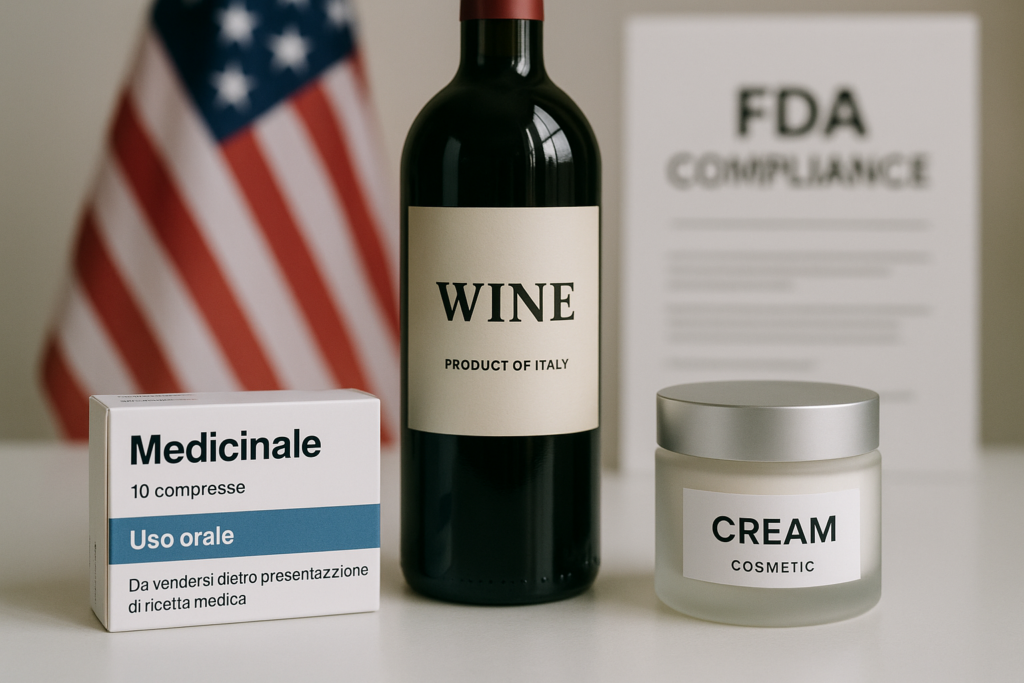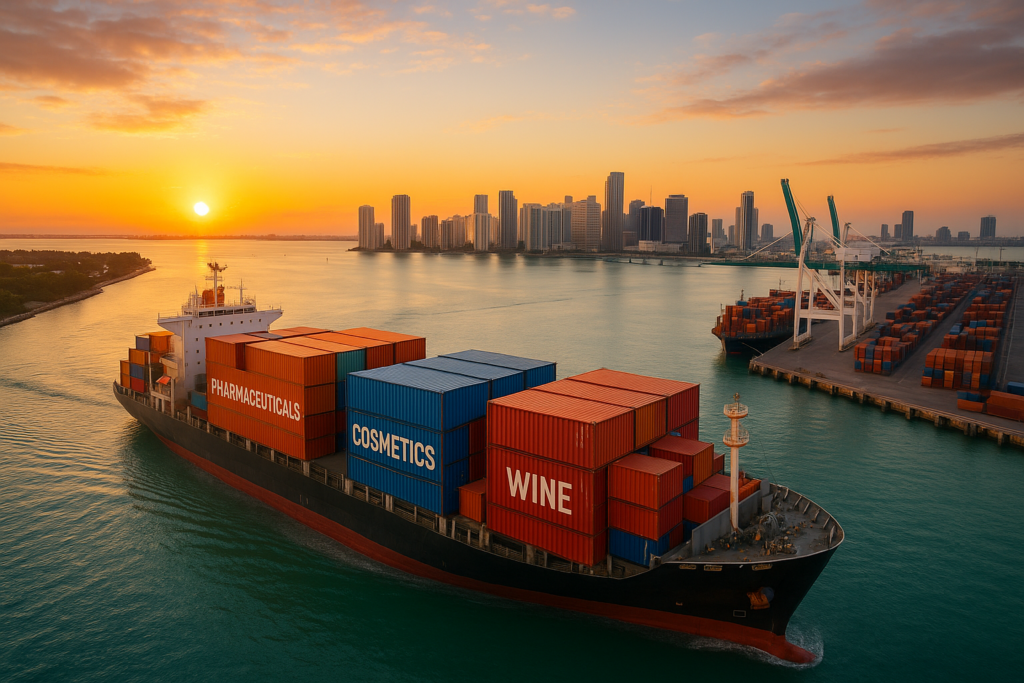By Carlos Bisio – CEO at FastForward (FDA Experts)
For companies aiming to export food, beverages, cosmetics, dietary supplements, or medical devices to the United States, understanding FDA (Food and Drug Administration) regulations is not just recommended—it’s essential.
The FDA is the U.S. federal agency responsible for protecting public health by ensuring the safety and labeling of products that reach American consumers. Its authority covers a wide range of goods, including packaged foods, seafood, snacks, juices, cosmetics, dietary supplements, and over-the-counter medical products.
One of the first steps for foreign manufacturers or distributors is to properly register their facility with the FDA and appoint a U.S. Agent to serve as a liaison with the agency. This process helps ensure traceability and accountability in case of product recalls or inspections. Failure to comply with FDA requirements can result in customs detentions or denial of entry at U.S. ports.

Foreign manufacturers and exporters must adhere to several key requirements before shipping to the U.S., such as:
- Facility registration: All foreign food and cosmetic facilities must register with the FDA and renew the registration every two years (or annually for some products).
- U.S. Agent designation: A mandatory contact person or entity based in the U.S. to communicate with the FDA on behalf of the foreign company.
- Labeling compliance: FDA requires specific formats for ingredient lists, nutrition facts (for foods), warnings, and product claims. These differ substantially from European or Latin American labeling rules.
- Prior Notice: Food shipments must be pre-declared to U.S. authorities before arrival.
- Adherence to specific laws: Recent updates like the FSMA (Food Safety Modernization Act) and MoCRA (Modernization of Cosmetics Regulation Act) have introduced new standards for safety plans, product listing, and adverse event reporting.
Failing to meet these standards may result in delays at customs, automatic detention, or import alerts.
At FastForward, we have analyzed recent trade and regulatory data and noted recurring compliance issues among exporters—especially in labeling, prior notice filings, and facility registration lapses. These gaps often delay access to the U.S. market or expose companies to regulatory penalties.
Italian and Latin American companies—particularly in the food and beauty sectors—often face challenges navigating this regulatory landscape, which differs significantly from EU or Latin American standards. Understanding the scope of FDA inspections, labeling rules (such as nutrition facts and ingredient declarations), and import alerts is crucial for market entry and business continuity.
As regulatory updates continue under laws like FSMA (Food Safety Modernization Act) and MoCRA (Modernization of Cosmetics Regulation Act), staying informed and compliant is more important than ever for exporters targeting the U.S.
In 2024, Italy’s exports to the United States reached approximately $70.16 billion, with FDA-regulated sectors playing a significant role in this trade relationship. The top three FDA-regulated Italian export sectors to the U.S. were:
- Pharmaceutical Products: $10.64 billion
- Beverages, Spirits, and Vinegar: $3.19 billion
- Essential Oils, Perfumes, Cosmetics, and Toiletries: $1.31
These sectors collectively accounted for over $15 billion in exports, underscoring the importance of FDA compliance for Italian exporters. Looking ahead, projections for 2025 suggest continued growth in these industries, driven by sustained demand and Italy’s strong manufacturing capabilities. However, exporters must remain vigilant regarding regulatory compliance, particularly with FDA requirements, to ensure seamless market access and to capitalize on growth opportunities in the U.S. market.





